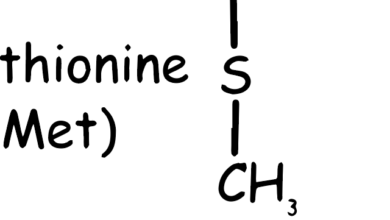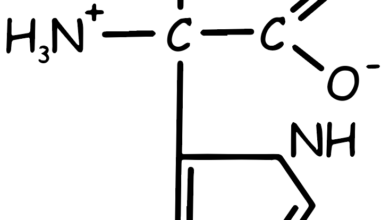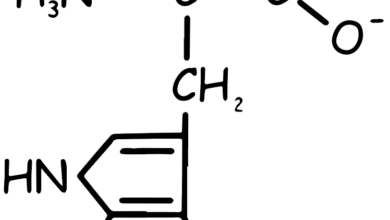Additives and Preservatives in Processed Foods

In our society, processed foods have become an increasingly convenient and quick way to feed our families. Health concerns have arisen due to the use of additives and preservatives in these foods. This article discusses additives and preservatives in processed foods, their effects on our health, and how we can make healthier food choices.
What are Additives and Preservatives?
Food additives and preservatives are substances added to food during processing to improve appearance, taste, texture, and shelf life. Food additives, such as colorants, emulsifiers, and stabilizers, are substances not normally consumed as foods. Preservatives, such as sodium benzoate and nitrites, prevent microorganisms from growing and delay spoilage.
Common Additives and Preservatives in Processed Foods
In order to enhance their flavor, texture, and appearance, processed foods are often loaded with additives and preservatives. Processed foods commonly contain the following additives and preservatives:
1-High-Fructose Corn Syrup (HFCS) is often used as a substitute for sugar. It has been linked to obesity, type 2 diabetes, and other health problems. The HFCS sweetener is made using corn starch that has been processed to convert some of its glucose into fructose. It is commonly used in processed foods and beverages because it is sweeter and cheaper than traditional sugar. HFCS is not inherently “bad” for you, although some studies suggest eating too much of it can increase your health risks. A major concern with HFCS is its fructose content. In contrast to glucose, fructose is primarily metabolized by the liver, leading to an increase in triglycerides and liver fat when consumed in excess. The result can be obesity, type 2 diabetes, and other health problems.
However, it’s important to note that most studies linking HFCS to negative health effects are based on animal studies or observational studies in humans. Controlled trials in humans have produced mixed results, with some showing no difference in health outcomes between HFCS and sugar consumption. In addition, HFCS is often found in processed foods that are high in calories, sugar, and unhealthy fats. Excess consumption of these foods can lead to negative health outcomes regardless of the sweetener used.
2-Artificial Sweeteners: Artificial sweeteners have been used for decades as a substitute for sugar, offering a sweet taste without the added calories.Artificial sweeteners such as aspartame, saccharin, and sucralose are used in diet and low-calorie foods as sugar substitutes. While they are often marketed as a healthier alternative, there are concerns about their potential health effects. Research has shown that these sweeteners may cause weight gain and cancer, among other health problems.
Aspartame: In the food industry, aspartame is one of the most common artificial sweeteners. In diet sodas, sugar-free gum, and other low-calorie products, it is commonly found. Aspartame has been linked to an increased risk of cancer in some studies, but the evidence is inconsistent.
Sucralose: As a calorie-free sweetener, sucralose is made from sugar.It is commonly used in baked goods, soft drinks, and other processed foods.Sucralose is generally considered safe, but some studies suggest that it may disrupt gut bacteria and increase diabetes risk.
Saccharin: Another calorie-free sweetener is saccharin, which has been around since the late 1800s. Low-calorie products and diet beverages often contain it. Saccharin has been linked to an increased risk of bladder cancer in some studies, but the evidence is mixed.
Stevia: Stevia is a plant-based sweetener that has gained popularity in recent years. Tea, coffee, and other beverages often use it as a sugar substitute. Some studies have suggested that stevia may negatively impact fertility, even though it is generally considered safe.
3-Trans Fats: Trans fats are unsaturated fats commonly found in processed foods. When liquid oils are partially hydrogenated, they become more stable and last longer. Studies have linked them to heart disease, strokes, and type 2 diabetes. Increased levels of LDL cholesterol (the “bad” cholesterol) and lowered levels of HDL cholesterol (the “good” cholesterol) caused by trans fats can lead to plaque buildup in arteries and an increased risk of heart disease.
Trans fats have been restricted or banned in many countries. As trans fats have no known health benefits and can have significant negative effects on health, the World Health Organization recommends eliminating them from the global food supply. Food labels can help consumers reduce their trans fat intake by avoiding products that list “partially hydrogenated oils” and “trans fats”.
4-Sodium Nitrate and Nitrite: Processed meats such as bacon, hot dogs, and deli meats use these to prevent bacterial growth. The consumption of sodium nitrate and nitrite has been linked to an increased risk of certain types of cancer, particularly colon cancer. By ingesting these chemicals, they can form cancer-causing substances called nitrosamines when they react with other compounds in the body. Heart disease risk increases with a high intake of sodium, which is found in sodium nitrate and sodium nitrite. People who consume foods containing sodium nitrate and nitrite may experience headaches or migraines. In industrial settings, workers exposed to these chemicals may suffer respiratory problems such as asthma and chronic bronchitis.
5-Monosodium glutamate (MSG) is commonly added to food products as a flavor enhancer. Some people have claimed that MSG can cause adverse health effects for several years.MSG has been reported to cause headaches, flushing, sweating, and nausea in some people. Typically, these reactions occur only when large amounts of MSG are consumed on an empty stomach. According to most scientific research on MSG, moderate consumption is safe for most people. FDA has classified MSG as generally recognized as safe (GRAS), meaning it is considered safe for consumption based on a long history of common use in food.
Those who are sensitive to MSG may experience adverse reactions even when consuming small amounts. MSG-sensitive individuals should avoid foods that contain MSG or other forms of free glutamate, such as hydrolyzed vegetable protein, autolyzed yeast, and soy extracts.



